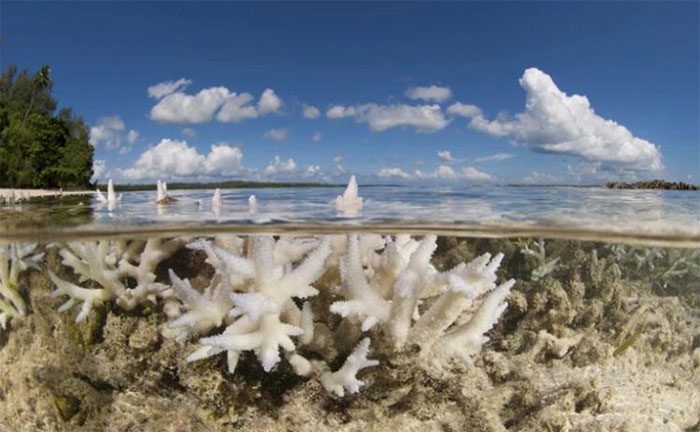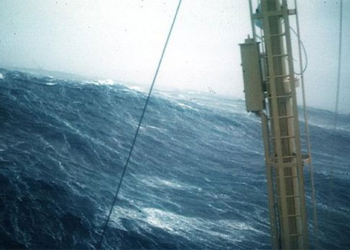Global ocean temperatures have spiked, as recorded by the National Oceanic and Atmospheric Administration (NOAA), potentially reaching their highest levels in over 100,000 years.
According to the scientific journal Nature, global oceans reached a new record temperature of 21.1 degrees Celsius in April. Notably, this occurred before—rather than during—the El Nino climate phenomenon. This is expected to bring warmer, wetter weather to the eastern Pacific region by the end of 2023.

Warming oceans could kill coral – (Photo: NPL).
The oceans absorb about 90% of the additional heat in the climate system due to global warming. However, because it requires more energy to heat water than air, surface water temperatures are increasing more slowly than air temperatures.
The record ocean temperatures, combined with the anticipated El Nino phenomenon, could devastate marine life and increase the likelihood of extreme weather events.
Josh Willis, an oceanographer at NASA’s Jet Propulsion Laboratory in Pasadena, California, stated: “We are looking at a string of record high temperatures for the next year or longer. Next year will be a year of crazy hot weather if El Nino really takes off.”
According to the World Meteorological Organization, there is a 60% chance of El Nino developing between May and July, with up to an 80% chance occurring by October.
Andrew Leising, an oceanographer at NOAA’s Southwest Fisheries Science Center, indicated that if El Nino develops as expected, “this could create a situation similar to 2014-2015, when we were hit by the Blob heat wave.” This was an exceptionally large marine heatwave that caused significant damage.
Marine heatwaves can devastate wildlife and fisheries. He added that as warm water moves ashore, it can foster harmful algal blooms, leading to closures in crab and clam fishing.
|
The oceans are set to lose large amounts of coral In 2016, record-high ocean temperatures led to a global coral bleaching event, resulting in the death of many species. Christian Voolstra, a coral researcher at the University of Konstanz in Germany, mentioned that another coral bleaching event is likely this year. “Even if El Nino is not stable this year, it will come soon enough,” he remarked. Dr. Jens Terhaar, a biophysical ocean modeler at the Woods Hole Oceanographic Institution in Massachusetts, tweeted in response to the news of the new temperature record: “We are in a new climate state; extremes are the new normal.” |





















































